The 6 Most Affordable & Simple Cleaning Solutions
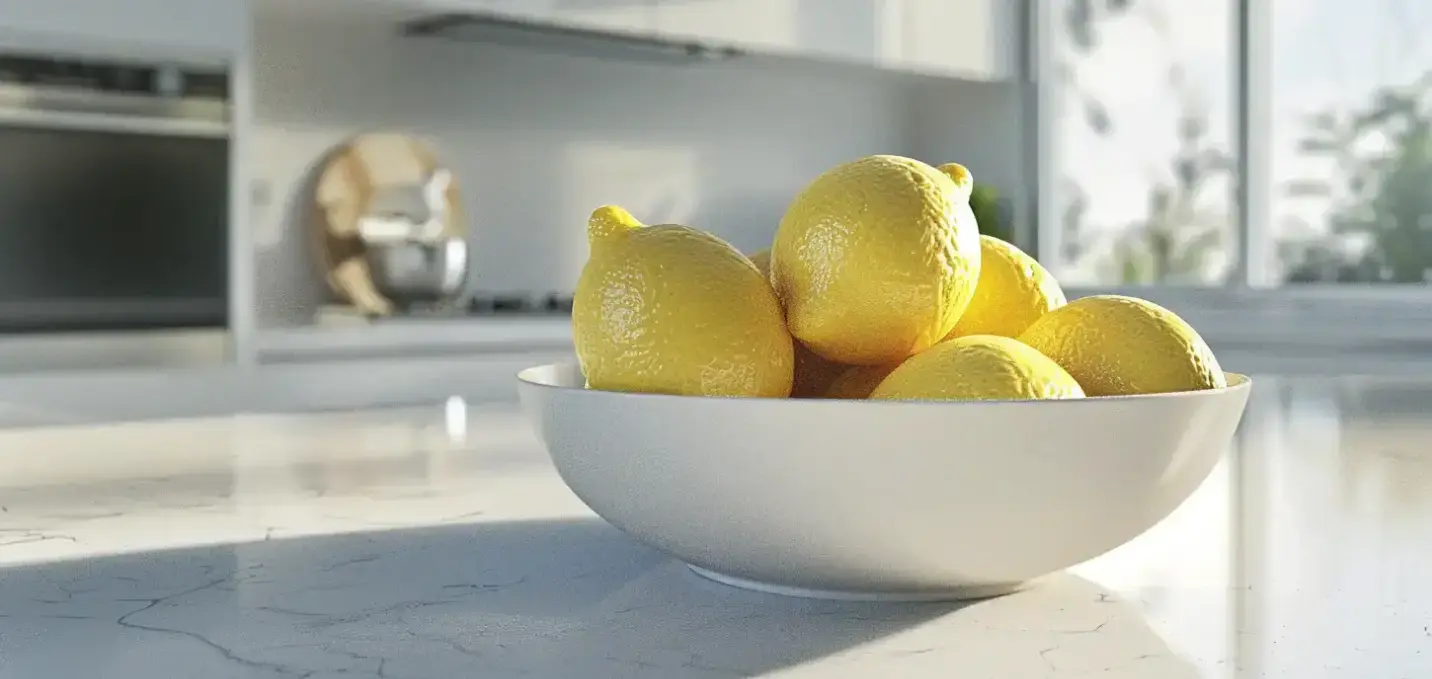
Contact COIT for a professional cleaning!
Cleaning solutions can be pricey, and there's no reason to have an individual cleaner for each room and surface.
Whether you’re cleaning appliances, countertops, or floors, you can keep your home squeaky clean with just a few items you likely already have. These ingredients are time-tested, affordable, and less toxic than many harsh cleaners.
At COIT, we’ve seen it all when it comes to cleaning challenges. We’ve learned that simple, cost-effective solutions often work best.
We’re excited to share some of our favorite cleaning hacks that our team swears by. These tips not only save money but also use ingredients that are safe for you and the environment.
Here are the 6 most affordable and simple cleaning solutions that will make your cleaning routine easy and effective.
Baking Soda: The Household Workhorse
Baking soda is the workhorse of your home. It’s incredibly versatile and can be used for various cleaning tasks. Here are some of our favorite uses for baking soda:
Shower
- How to Use:
- Spray the walls and floor with vinegar.
- Sprinkle baking soda over the surfaces.
- Make a paste by scrubbing.
- Benefits:
- Removes soap scum and grime effectively.
- Non-toxic and safe for all family members.
- Personal Tip:
- We always recommend buying baking soda in bulk for extra savings.
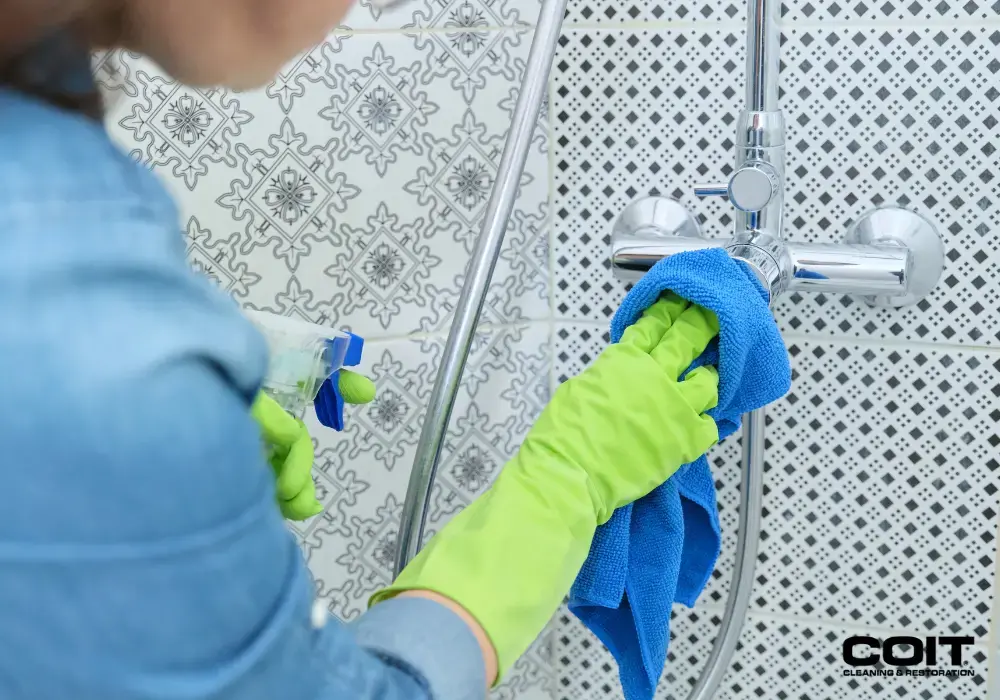
Toilet
- How to Use:
- Pour 1 cup of baking soda into the toilet bowl.
- Start scrubbing with a toilet brush.
- Benefits:
- Eliminates odors and stains without harsh chemicals.
- Personal Tip:
- It’s a great alternative to expensive toilet-specific cleaners.
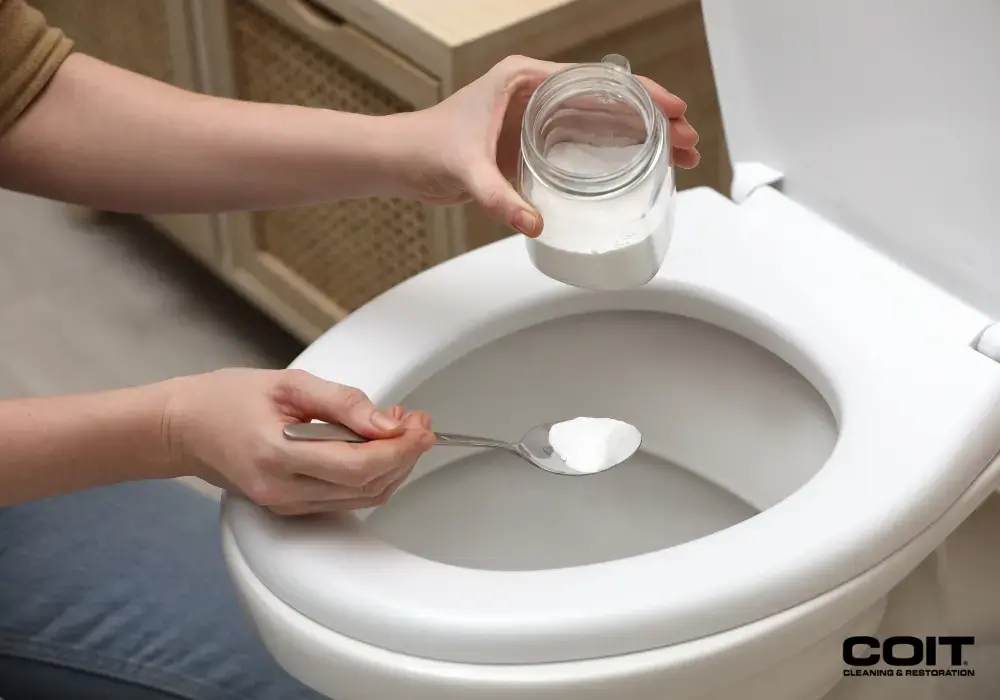
Drain Cleaning
- How to Use:
- Pour 1/2 cup of baking soda down the drain.
- Follow with hot water to keep drains running clear.
- Benefits:
- Prevents clogs and keeps your plumbing in good shape.
- Personal Tip:
- Regular maintenance with baking soda can save you from costly plumber visits.

Unclogging Pipes
- How to Use:
- Bail out any existing water from the sink.
- Pour 1/2 cup of baking soda into the drain.
- Follow with 1 cup of vinegar and quickly cover the drain.
- Hold in place until fizzing stops.
- Flush with boiling water.
- Benefits:
- Clears stubborn clogs naturally and effectively.
- Personal Tip:
- This method is a safe and eco-friendly alternative to chemical drain cleaners.
Soaking Pots and Pans
- How to Use:
- Soak pots and pans with burned-on food in baking soda and water.
- Benefits:
- Makes scrubbing easier and less time-consuming.
- Personal Tip:
- Let them soak overnight for the best results.

Vinegar: The Versatile Cleaner
Vinegar is another household staple that’s incredibly versatile. It’s an excellent cleaner for various surfaces and is especially effective when combined with baking soda or hydrogen peroxide.
Dishwasher
- How to Use:
- Add 1/2 cup of vinegar to the dishwasher.
- Run it empty to keep it fresh and clean.
- Benefits:
- Removes built-up grime and deodorizes the dishwasher.
- Personal Tip:
- Do this once a month to maintain your dishwasher’s efficiency.
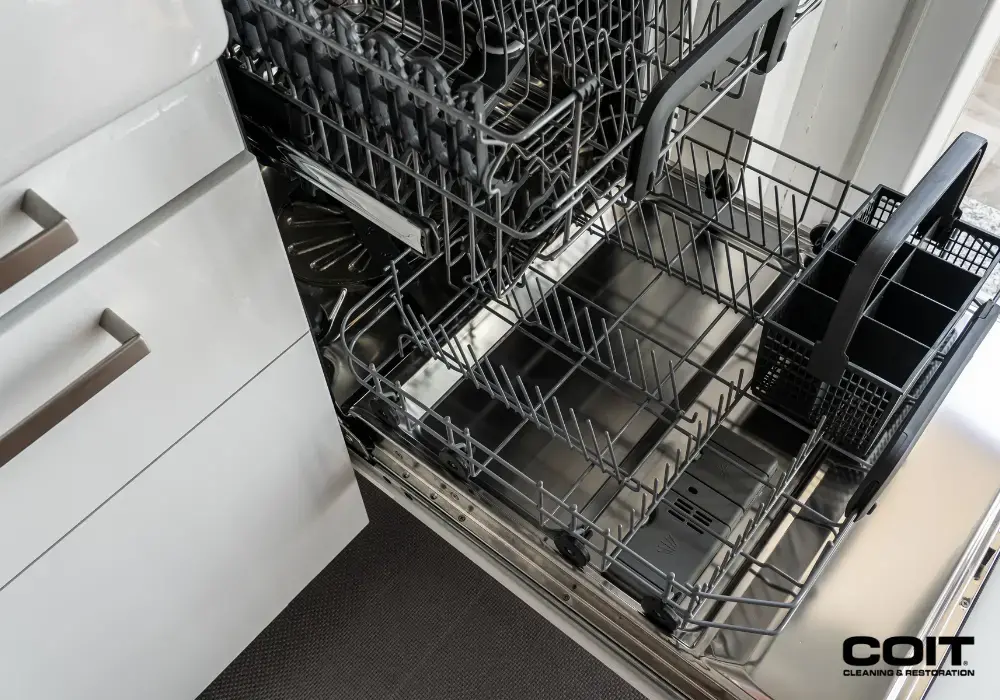
Showerheads
- How to Use:
- Pour vinegar into a plastic bag.
- Secure it to the neck of the showerhead.
- Leave it overnight and rinse clean in the morning.
- Benefits:
- Removes mineral deposits and keeps water flowing smoothly.
- Personal Tip:
- This method also works for faucets with hard water buildup.
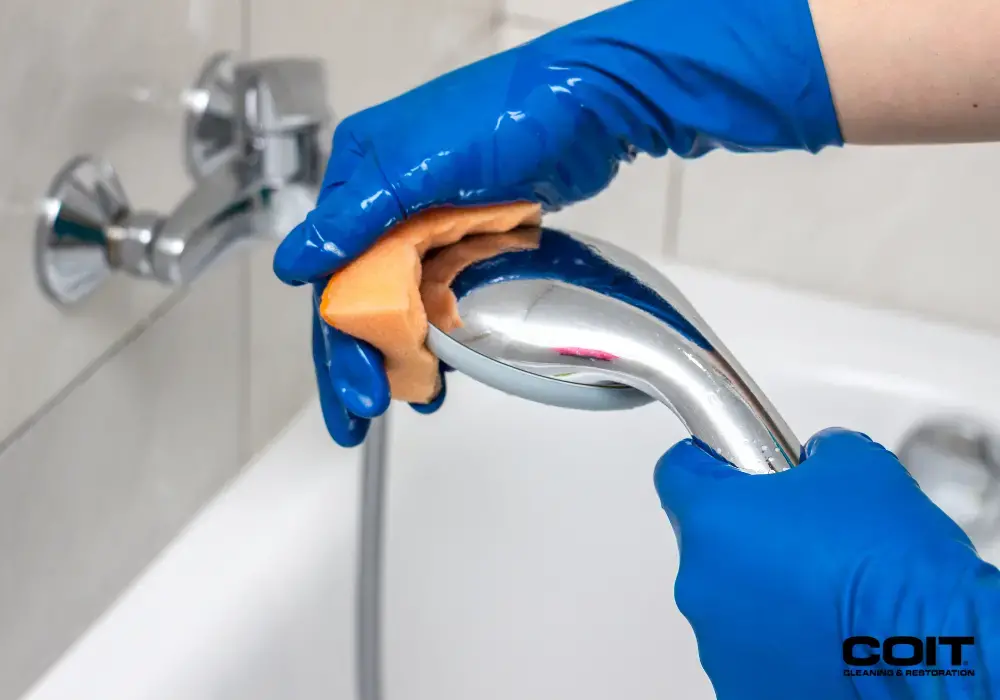
Windows
- How to Use:
- Mix equal parts of white distilled vinegar and warm water.
- Spray on windows and wipe dry with a soft cloth.
- Benefits:
- Leaves windows streak-free and sparkling.
- Personal Tip:
- Use old newspapers for a streak-free shine.
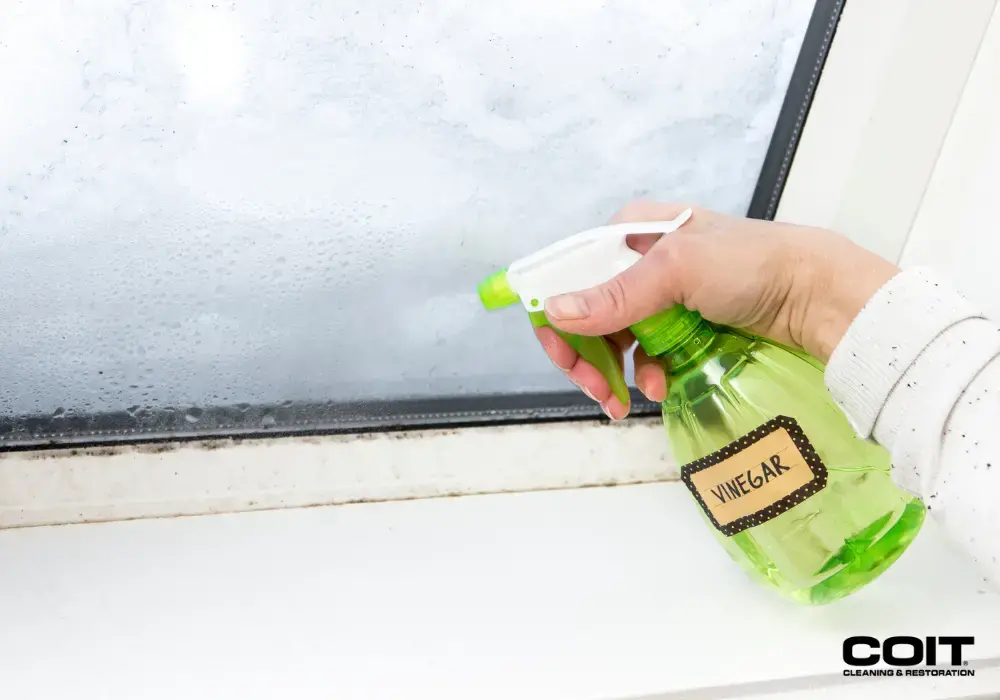
Hydrogen Peroxide: The Simple Disinfectant
Hydrogen peroxide is a powerful disinfectant that can boost the cleaning power of vinegar. It’s also great for tackling tough stains and keeping surfaces germ-free.
Disinfecting Surfaces
- How to Use:
- Clean the surface with vinegar first.
- Spray the surface with hydrogen peroxide.
- Store hydrogen peroxide in an opaque bottle to prevent degradation.
- Benefits:
- Kills bacteria and viruses without harsh chemicals.
- Personal Tip:
- Use it on kitchen countertops and cutting boards for a thorough clean.
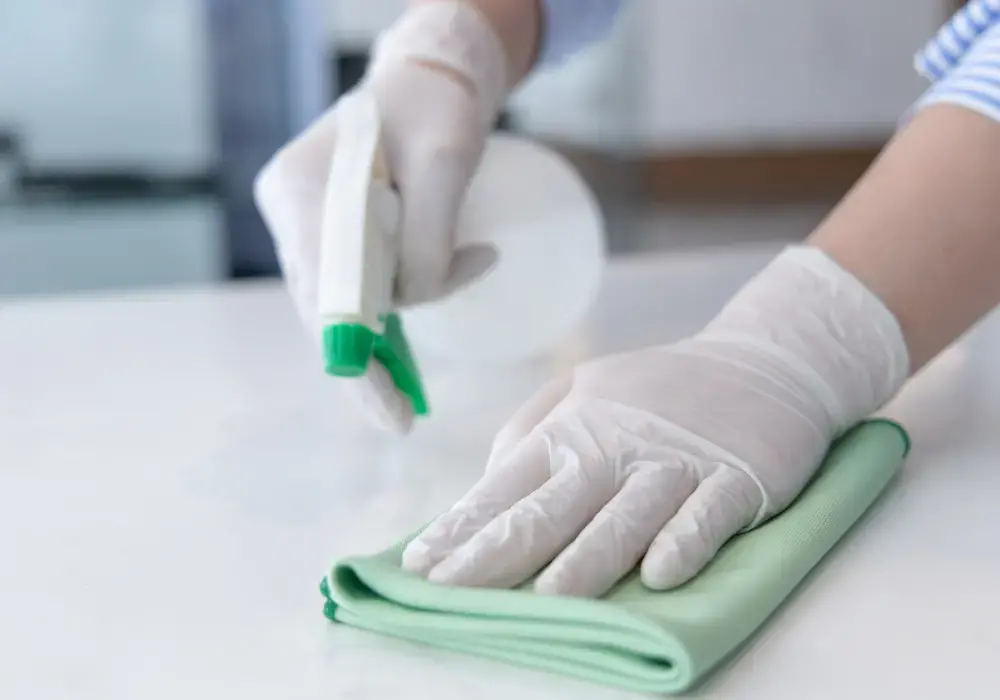
Grout Cleaning
- How to Use:
- Spray hydrogen peroxide on grout.
- Scrub with a brush or sponge.
- Let sit for 10 minutes for extra stubborn stains.
- Benefits:
- Restores the original color of grout and removes mold.
- Personal Tip:
- Repeat weekly to keep grout looking fresh.

Kitchen Surfaces
- How to Use:
- Spray hydrogen peroxide on countertops and cutting boards.
- Benefits:
- Disinfects and deodorizes surfaces.
- Personal Tip:
- Rinse thoroughly before food preparation.

Dish Soap: The Everyday Cleaner
Dish soap isn’t just for dishes—it’s a powerful cleaner for almost any surface in your home. Here’s how you can use it effectively:
Floors
- How to Use:
- Mix a few drops of dish soap per quart of hot water.
- Mop the floor and follow with clean water to remove any soap residue.
- Benefits:
- Leaves floors clean and shiny without streaks.
- Personal Tip:
- Use a microfiber mop for the best results.
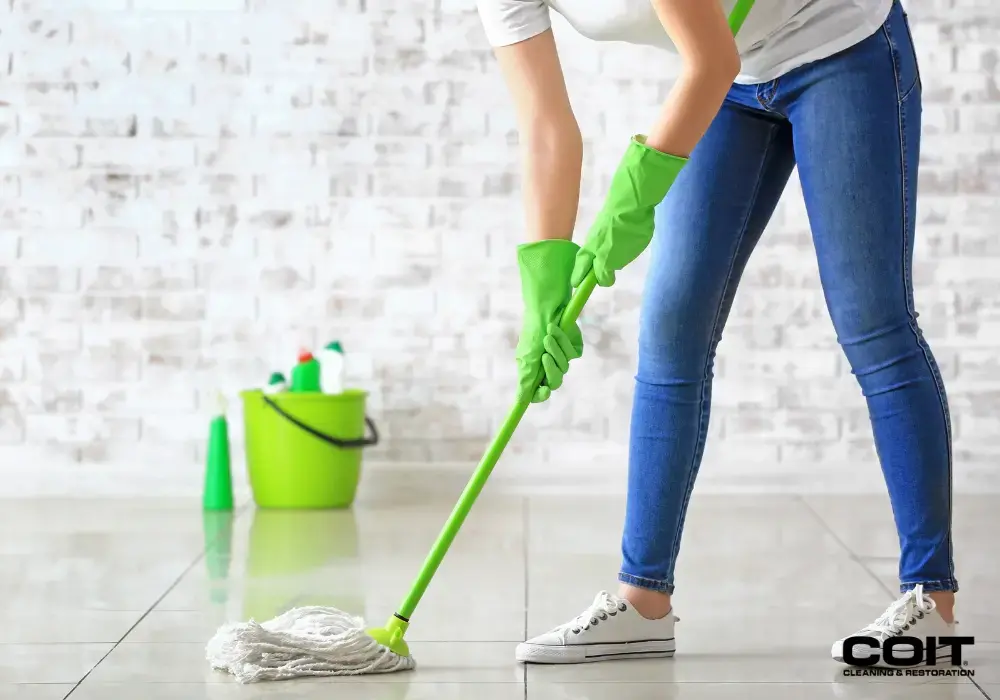
Cabinets
- How to Use:
- Mix 1 teaspoon of dish soap per 2 cups of water.
- Wipe down cabinets with the solution.
- Benefits:
- Removes grease and grime easily.
- Personal Tip:
- Wipe with a dry cloth after cleaning to prevent water damage.

General Cleaning
- How to Use:
- Use dish soap for cleaning toilets, showers, and sinks.
- Benefits:
- It’s a versatile cleaner that can tackle any surface.
- Personal Tip:
- Keep a spray bottle with dish soap and water for quick cleanups.
Contact COIT for a professional cleaning!
Lemons: Nature’s Fresh Cleaner
Lemons are not only great for cooking—they’re also fantastic for cleaning. Their natural acidity makes them effective against stains and odors.
Hard Water Stains
- How to Use:
- Rub glass, stainless steel, or tiles with a cut lemon.
- Benefits:
- Removes hard water stains and leaves surfaces shiny.
- Personal Tip:
- Rinse with water to avoid sticky residue.
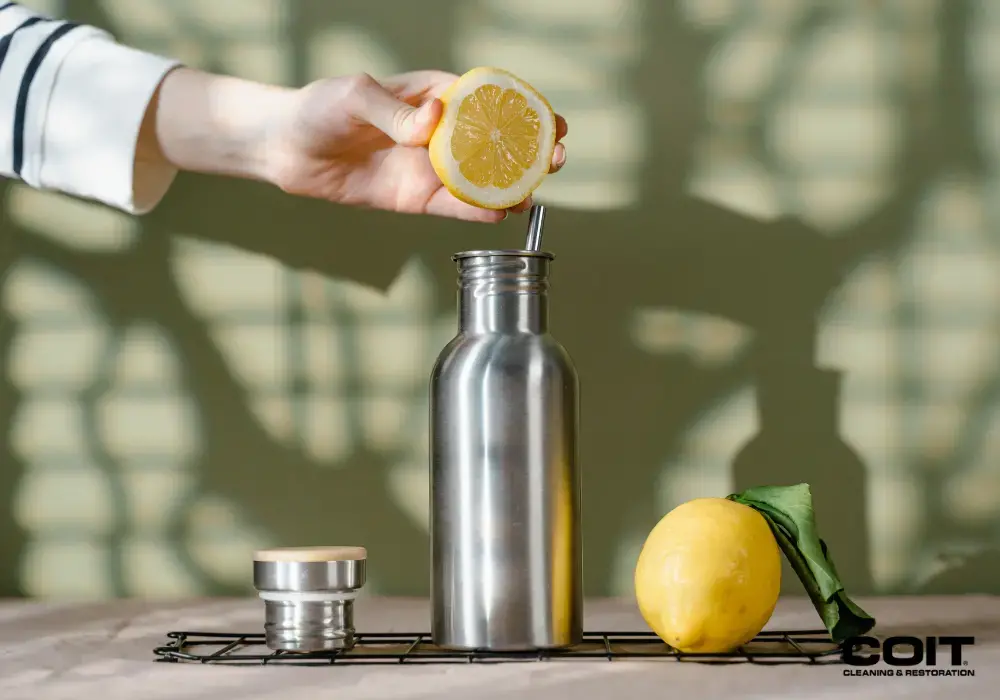
Microwave Cleaning
- How to Use:
- Place 1/2 of a lemon in a bowl of water.
- Microwave on high for 2-4 minutes until water boils.
- Let sit in the microwave for 10 minutes.
- Wipe the microwave out with a sponge.
- Benefits:
- Cleans and deodorizes the microwave effectively.
- Personal Tip:
- This method also helps loosen stubborn food splatters.
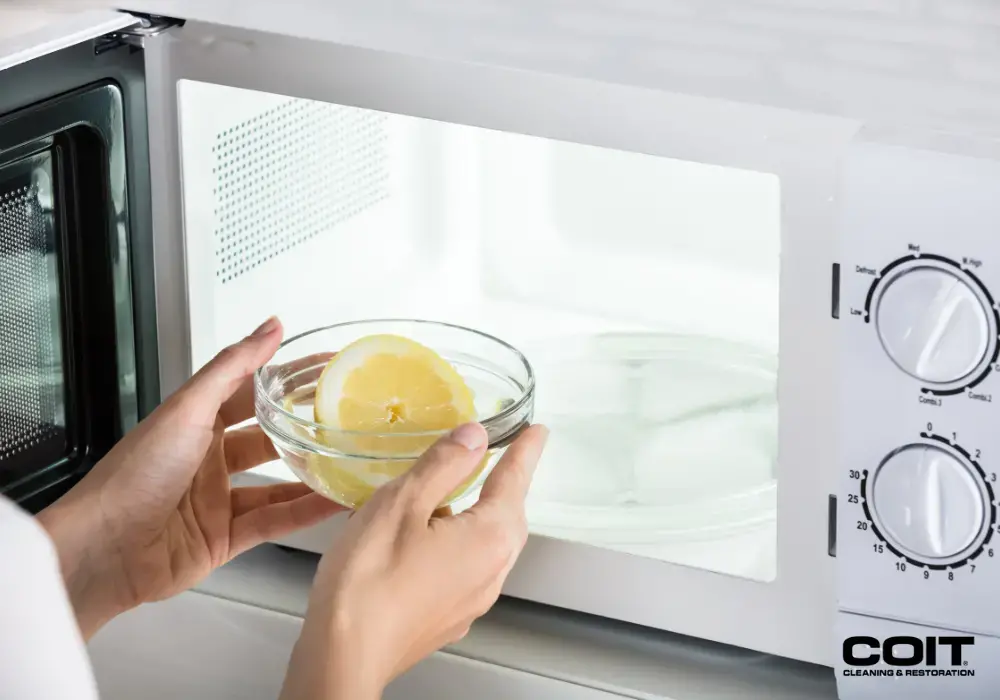
Quick Scrubs
- How to Use:
- After squeezing a lemon for cooking or drinks, use it to scrub surfaces.
- Toss the used lemon in the garbage disposal to freshen the drain.
- Benefits:
- Multi-tasks as a cleaner and deodorizer.
- Personal Tip:
- Use this trick on shower glass, copper, and cutting boards.
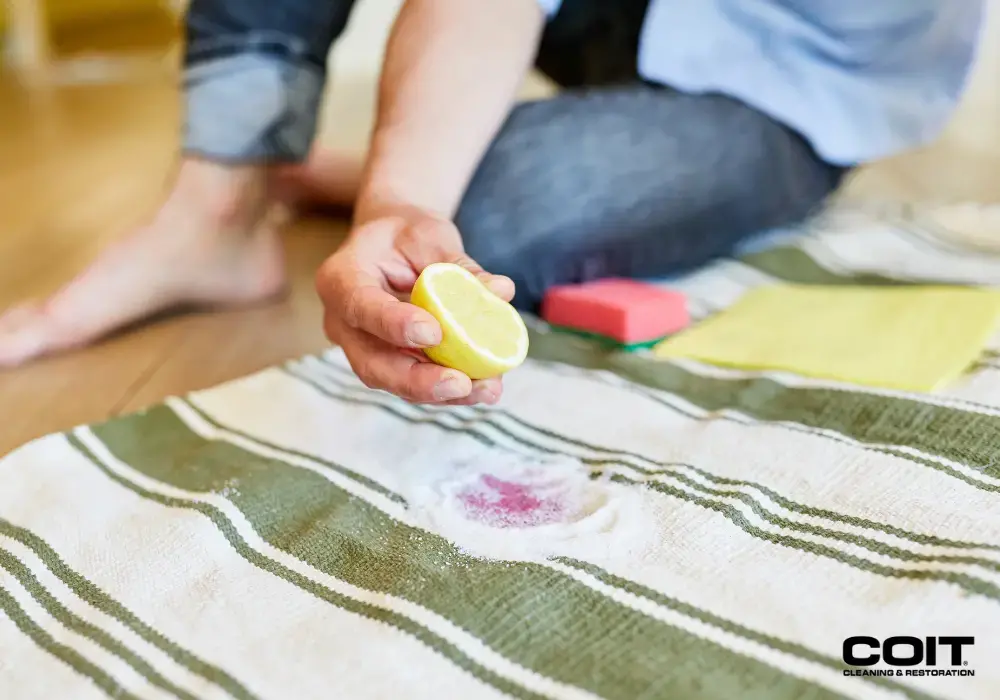
Rubbing Alcohol: The Fast Evaporator
Rubbing alcohol is great for quick cleanups and disinfecting surfaces. It evaporates quickly, making it ideal for use on surfaces that need to dry fast.
Stainless Steel
- How to Use:
- Wipe stainless steel with a soft cloth and rubbing alcohol.
- Benefits:
- Removes fingerprints and leaves a streak-free shine.
- Personal Tip:
- Use this method on kitchen appliances and fixtures.
Hairspray Removal
- How to Use:
- Wipe mirrors and tiles with a soft cloth and rubbing alcohol.
- Benefits:
- Easily removes sticky hairspray residue.
- Personal Tip:
- This method works well for other sticky residues too.
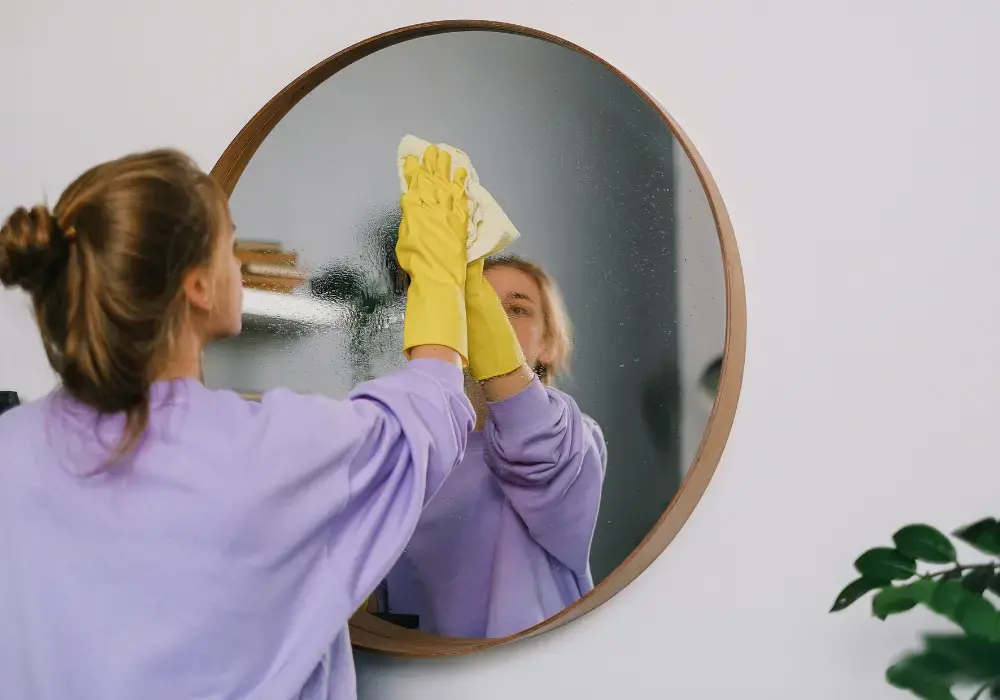
Microfiber Cleaning
- How to Use:
- Spray rubbing alcohol on microfiber surfaces.
- Wipe with a clean, white sponge or cloth and allow to dry.
- Benefits:
- Cleans without penetrating the fabric.
- Personal Tip:
- Perfect for cleaning microfiber couches and chairs.
Eco-Friendly Cleaning Solutions
Using simple, non-toxic cleaning solutions not only saves you money but also helps protect the environment.
Many commercial cleaners contain harsh chemicals that can be harmful to your health and the planet. By using natural ingredients like baking soda, vinegar, hydrogen peroxide, dish soap, lemons, and rubbing alcohol, you can achieve a clean home without the negative side effects.
Environmental Benefits
Non-Toxic Ingredients
These solutions are free from harmful chemicals, making them safer for your family and pets.
Reduced Waste
Many of these ingredients come in recyclable packaging or can be bought in bulk, reducing plastic waste.
Lower Carbon Footprint
DIY cleaning solutions often require less energy to produce and transport than commercial cleaners.
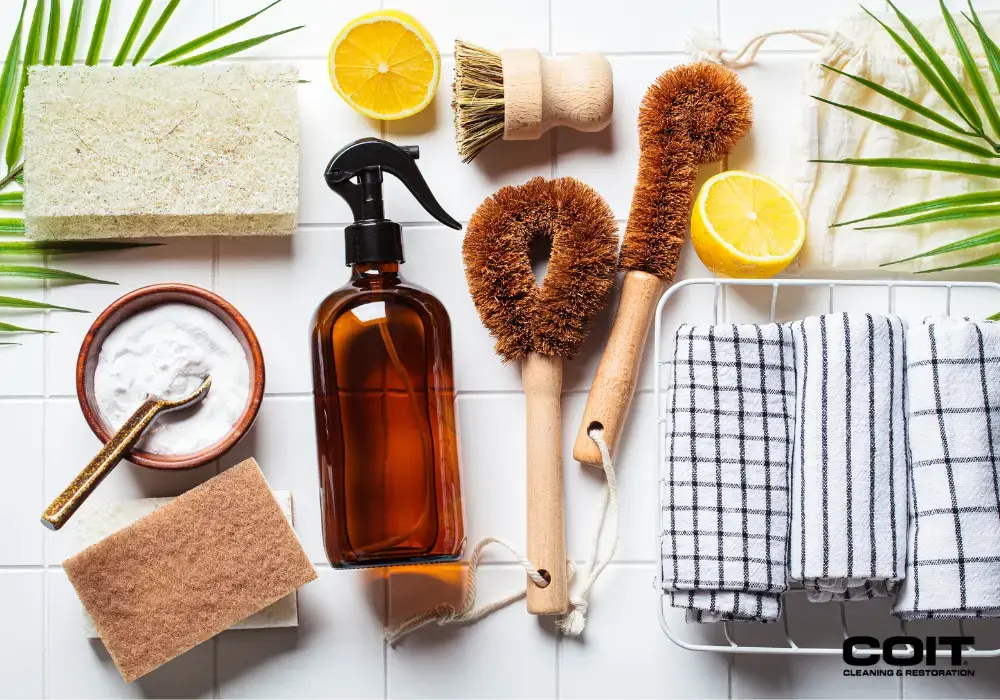
By using these simple and affordable cleaning solutions, you can keep your home clean and fresh without breaking the bank.
At COIT, we believe in the power of simple, non-toxic cleaners that are effective and safe for your family and the environment. Give these tips and recipes a try, and you’ll see how easy and satisfying it is to maintain a clean home with minimal effort and expense.
If you need extra help or want a professional touch, don’t hesitate to call COIT for all your cleaning needs.
Our expert team is ready to provide top-quality cleaning services to keep your home looking its best. Contact us today!



